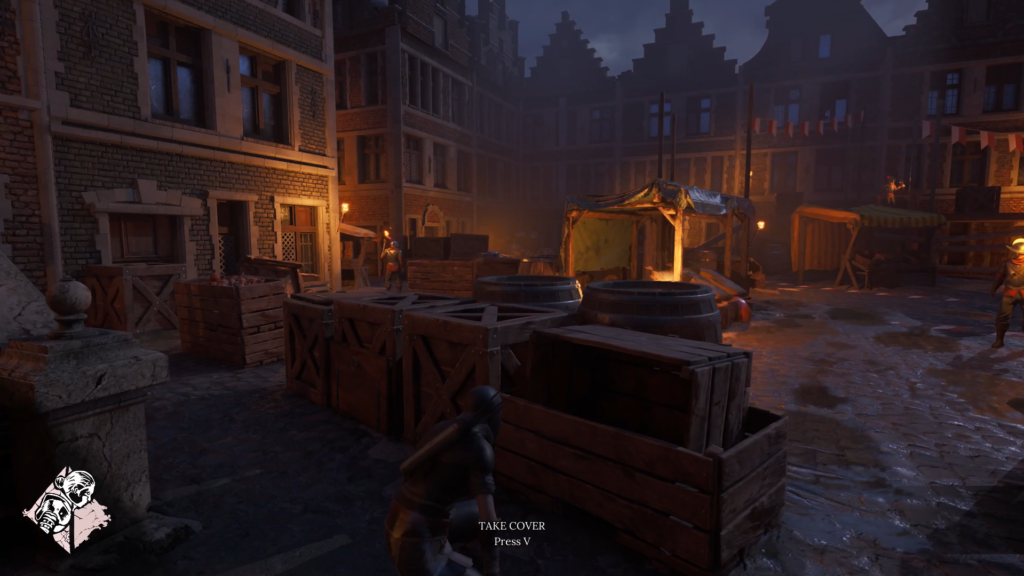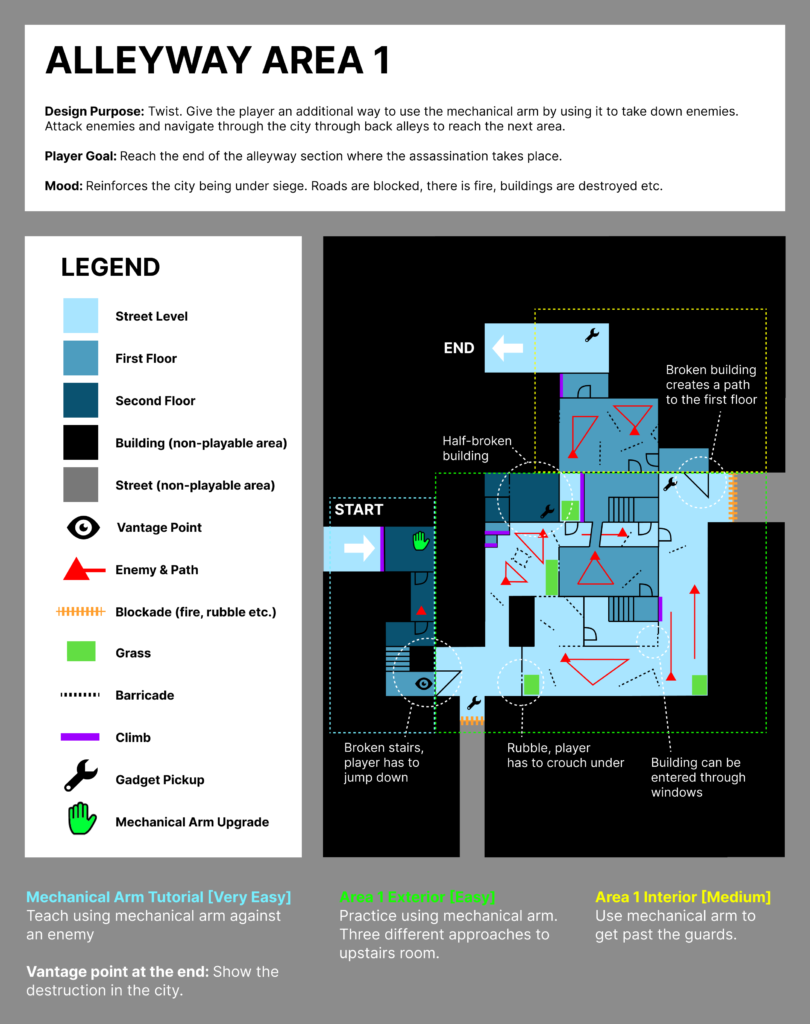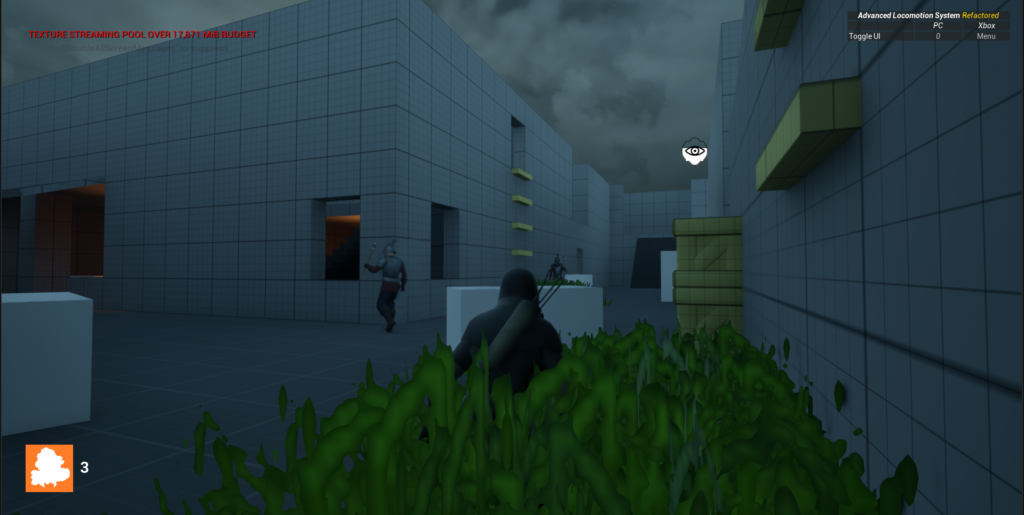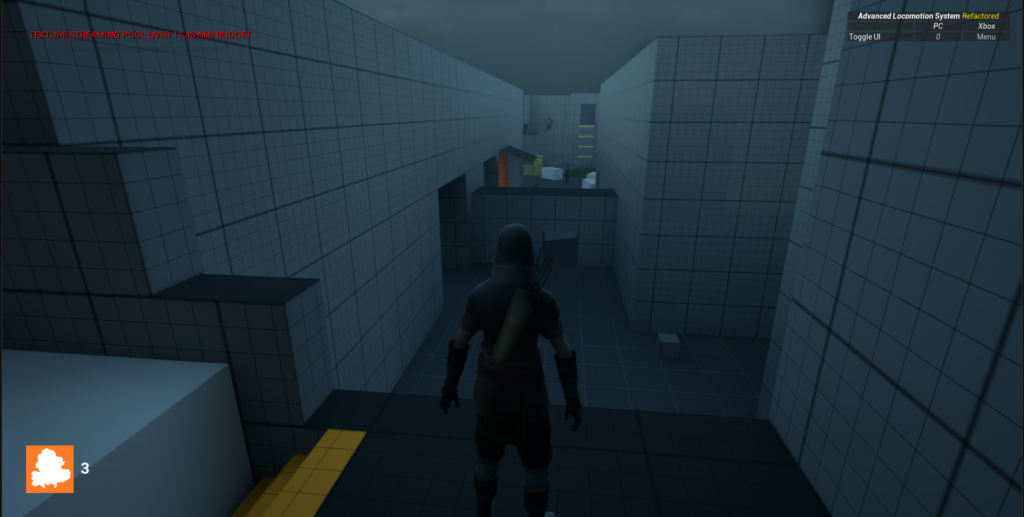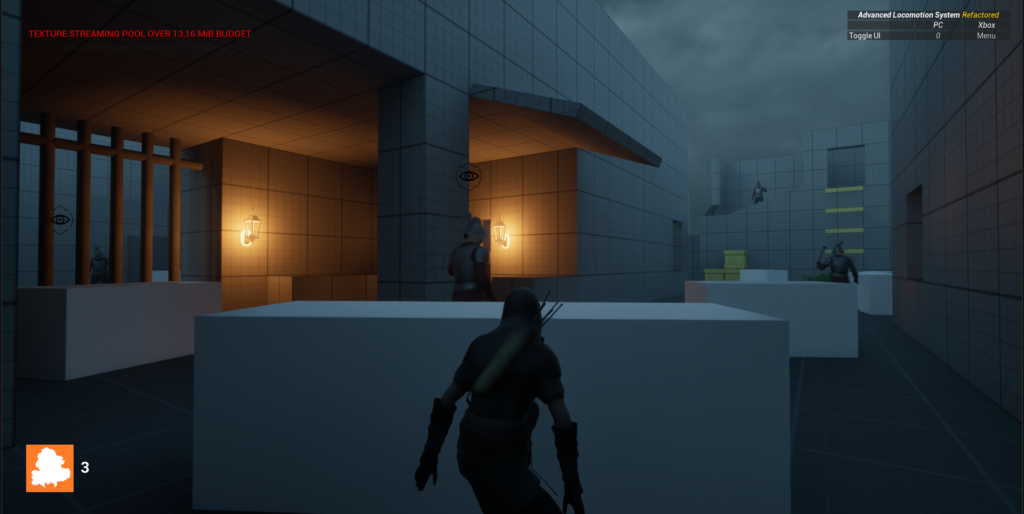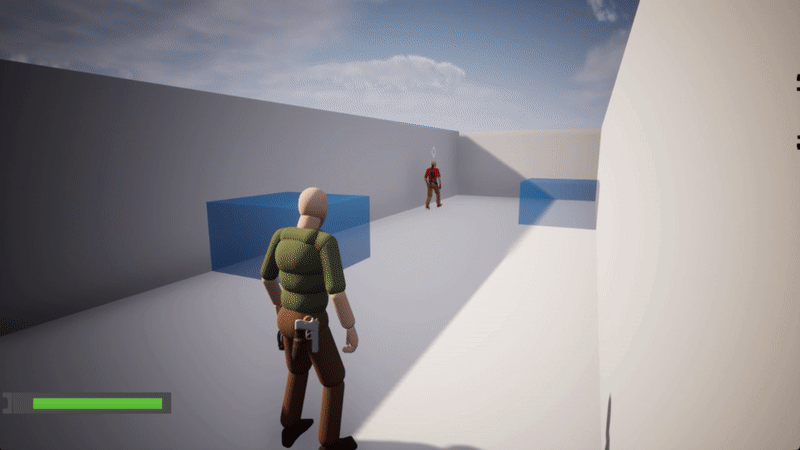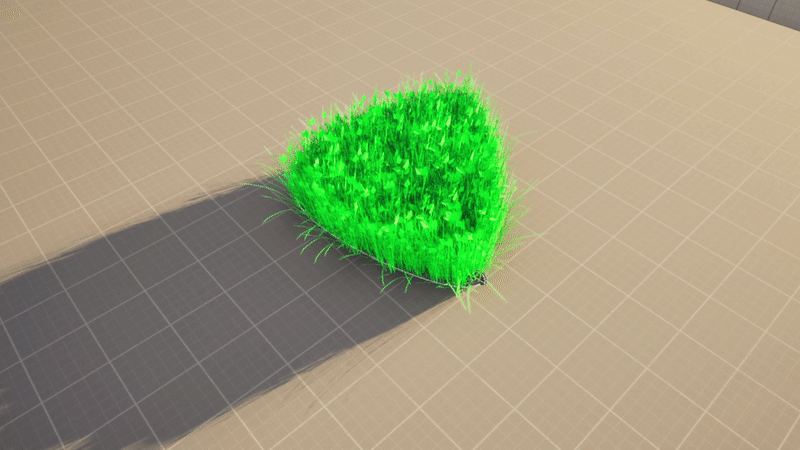STEALTH
Level Designer
I’m currently working as a level designer on an upcoming third-person stealth action-adventure game set in Antwerp, Belgium, during the 80 Years’ War. The game is made in Unreal Engine 5 and it will be released on Steam in June 2024.
More level design work will be published on this page later.
20 People+
Unreal Engine 5
10 Months
Overview
Concept
- Set in Antwerp, Belgium, during the 80 Years’ War (1568-1648)
- The main character is a tinkerer with a mechanical arm and gadgets. Her blueprints have been stolen by the enemy, and she needs to get them back before they use them to build a weapon.
Workflow
Research
Researched stealth games, Antwerp architecture, and the 80 Years' War
Prototype
Prototyped level design ingredients for the game.
Gym Level
Tested prototypes and established metrics.
Node Map
Created a node map exploring the possible paths for the player in a non-linear level.
Level Sketch
Sketched enemy encounters and the level layout
Blockout
Grey-boxing the level based on the sketches
CURRENT PROGRESS
Set Dressing
Set dressing the level together with the artists
Playtest & Iterate
Playtesting and iterating on the level during blockout and set dressing phases
Release
The game will be released on Steam in June 2024.
CONCEPT
Level Design One Pager
This is the third area of the game, after initial onboarding and an open marketplace area.
Purpose of Level: Introduce a new ability for the player: using their mechanical arm to take down enemies.
Location: Antwerp alleys at night.
Narrative and mood: Show the siege of Antwerp and the destruction of the city. I do this through scripted events, blocked off streets that push the player to take an alternative path through the side alleys, destroyed buildings, and fire.
Player goal: Reach the end of the alleyways to assassinate an enemy.
Navigation: There are multiple paths and approaches. Throughout the level, there are many vantage points from which the player can not only strategize on how to stealthily take out the enemies, but also see other areas to help guide them through the level.
Blockout
Level Blockout
Enemy Encounters
Whistle Encounter
This encounter is from the beginning of the game where the player is onboarded and taught the game’s mechanics.
The purpose of this encounter is to teach the player to whistle to catch the guards’ attention and get the guards to start looking for the player while the player takes another path around them.
Bottle Encounter
This is another encounter from the onboarding area. The purpose of this encounter is to teach the player to throw bottles to distract enemies and get past them.
When approaching the area, the player can immediately see where they’re supposed to go with the help of guiding lights and leading lines. They can study the area from different angles before deciding on a way to approach the situation.
Practice Zone
This is the final encounter in the onboarding area. The purpose of this encounter is to get the player to practice what they have learned so far before they enter more difficult challenges.
The area has multiple approaches, and there are several vantage points where the player can study the area before deciding on a way to approach the situation.
Level Design Ingredients
Grass Hiding Spot
I prototyped a grass level design ingredient that allows the player to hide inside it when crouching.
I first created a cube that hides the player using Unreal Engine blueprints (visual scripting) and then combined this with a PCG graph spline to procedurally generate grass and the hiding spot inside the spline.
Result
Learning Outcome
My main learning outcomes for this project were:
- Using world partitioning and data layers to work on the same map with multiple people.
- Using visual scripting (UE5 blueprints) and procedural content generation to prototype level design ingredients.
- Designing strategic enemy encounters that have multiple approaches with stealth and takedowns.
- Non-linear level design with multiple paths.
- Releasing a game on Steam.
